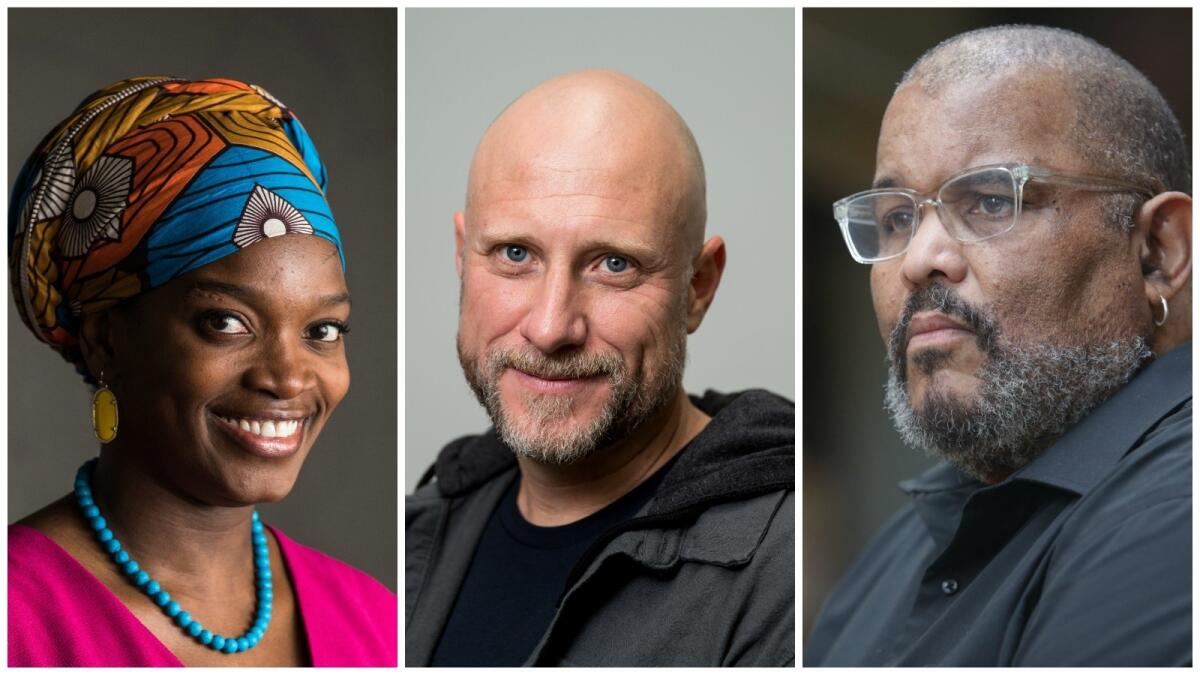Perspective: Why MacArthur fellowships matter: In modern culture, expertise is under fire
The
The MacArthur instead rewards expertise — and nothing more, as most awards do. Take the notorious example of “Crash.”
When this exceedingly clever movie about racial conflicts, large and small, won the Academy Award for best picture in 2006, beating out the artistically superior “Brokeback Mountain,” I didn’t much mind. The winner soon enough disappeared into the entertainment storage racks at Netflix, while the also-ran ascended to its rightful place in the pantheon of profound cinematic achievements.
The silliness of the Oscar choice reflected poorly on the academy, but the loss didn’t ding a masterpiece. “Brokeback Mountain,” a harrowing tragedy of lives diminished by their disappearance into the closet, was instrumental in changing innumerable hearts and minds about society’s cruelty toward LGBTQ people.
What important awards recognize is not “the best,” whether it’s a best picture or, with the MacArthur, a best anthropologist or poet. Instead, they recognize the crucial importance of expertise in navigating daily life.
Today, in public attitudes toward everything from science to politics, expertise is under enormous stress. Overwhelming expert consensus on the existential threat of climate change regularly gets denied. Proficiency in public service is deliberately AWOL from the current White House, while its Cabinet is packed with know-nothings in their areas of responsibility. The Pew Research Center reported in July that, for the first time, nearly half of Americans — 45% — do not believe that schools of higher learning have a positive effect on the country.
There’s more. That pressure makes the MacArthur awards extra important.
Expertise, like mathematics and pornography, is famously difficult to define. Proficiency doesn’t require formal training or academic achievement, although both can help. Neither time nor toil guarantees obtaining it.
I like the description offered by Swiss cognitive scientist Fernand Gobet. He’s the author of “Understanding expertise: A multidisciplinary approach,” a recent book that is packed with expertise about expertise.
Experts, he notes, could include Wolfgang Amadeus Mozart in music and your neighborhood baker in breads, Marie Curie in science and a grandmaster in chess known only to aficionados of the game. To boil down a couple hundred pages, perhaps unfairly, Gobet says that expertise simply reflects results that are vastly superior to those obtained by most of the population.
And that includes “Crash.”
I couldn’t be happier for the new class of 24 recipients of the John D. and Catherine T. MacArthur Foundation fellowships as well. As news, the award is a big deal, thanks to its hefty financial windfall. Each fellow will receive a stipend amounting to about $2,400 a week for the next five years.
Three visual artists made this year’s cut: Nigeria-born, L.A.-based Njideka Akunyili Crosby, who layers domestic genre paintings with collage, both physical and conceptual; Dawoud Bey, the Chicago-based street photographer of subjective portraits, especially of African Americans; and Berlin-based American Trevor Paglen, whose mysterious photographs document the ubiquitous metadata surrounding 21st century life.

Of more than 50 artists who have received the award since the program started, I would have chosen fewer than half to get the honor, with its accompanying bonanza of publicity, cash and professional mobility. That’s immaterial, though. A list of the best says more about my interests than it does about them. All 50-plus demonstrate unquestionable expertise in their field, and awards like this celebrate it.
How are they chosen? The rigorous and layered process is a good one.
Recipients are first nominated by anonymous professionals in their field, and then other experts from outside the foundation are asked for their opinions. An independent committee evaluates the results and forwards recommendations to the foundation. (Cecilia Conrad, former vice president of academic affairs and dean at Pomona College, is now the foundation’s managing director.) Experts tend to recognize other experts.
I’ve been a nominator in the past, and my opinion on other candidates has been solicited. On occasion I declined to offer judgment, if it concerned an artist about whom I was not exceptionally enthusiastic. The formal expertise of all of them was never in doubt, but a nominee deserves nothing short of a vigorous advocate.
Sometimes the final selection committee agreed with my recommendation, and sometimes it didn’t. Of course, I would have preferred the foundation’s unfailing concurrence — who wouldn’t? — but never have I thought that a recipient had sold the foundation’s mission short.
And that’s more important than ever today, when expertise is under assault.
The danger is that manipulative demagoguery flourishes in an environment polluted by the anxiety driving the assault on expertise. I don’t expect the modest number of MacArthur Foundation fellowships to change the situation. Because being an expert is the functional opposite of being a moron, however, I’ll take a ringing endorsement of expertise anywhere I can find it.
Besides, there’s a special angle to MacArthur fellows who are artists. Perception, notes Swiss scientist Gobet, is the core of expertise.
“Experts literally ‘see’ things differently compared to novices,” he’s written, “enabling them to categorize situations and problems better.” To appreciate what he means, check out Akunyili Crosby’s paintings and the photographs of Bey and Paglen. Perception is an artist’s beating heart, and their art strives to help you see what they do.
Twitter: @KnightLAT
MORE MACARTHUR STORIES:
Roundup of this year’s fellows for arts and culture
Literature: Jesmyn Ward, chronicling the rural South
Literature: Viet Thanh Nguyen, exploring the immigrant experience
Theater: Taylor Mac, bending gender
The biggest entertainment stories
Get our big stories about Hollywood, film, television, music, arts, culture and more right in your inbox as soon as they publish.
You may occasionally receive promotional content from the Los Angeles Times.








